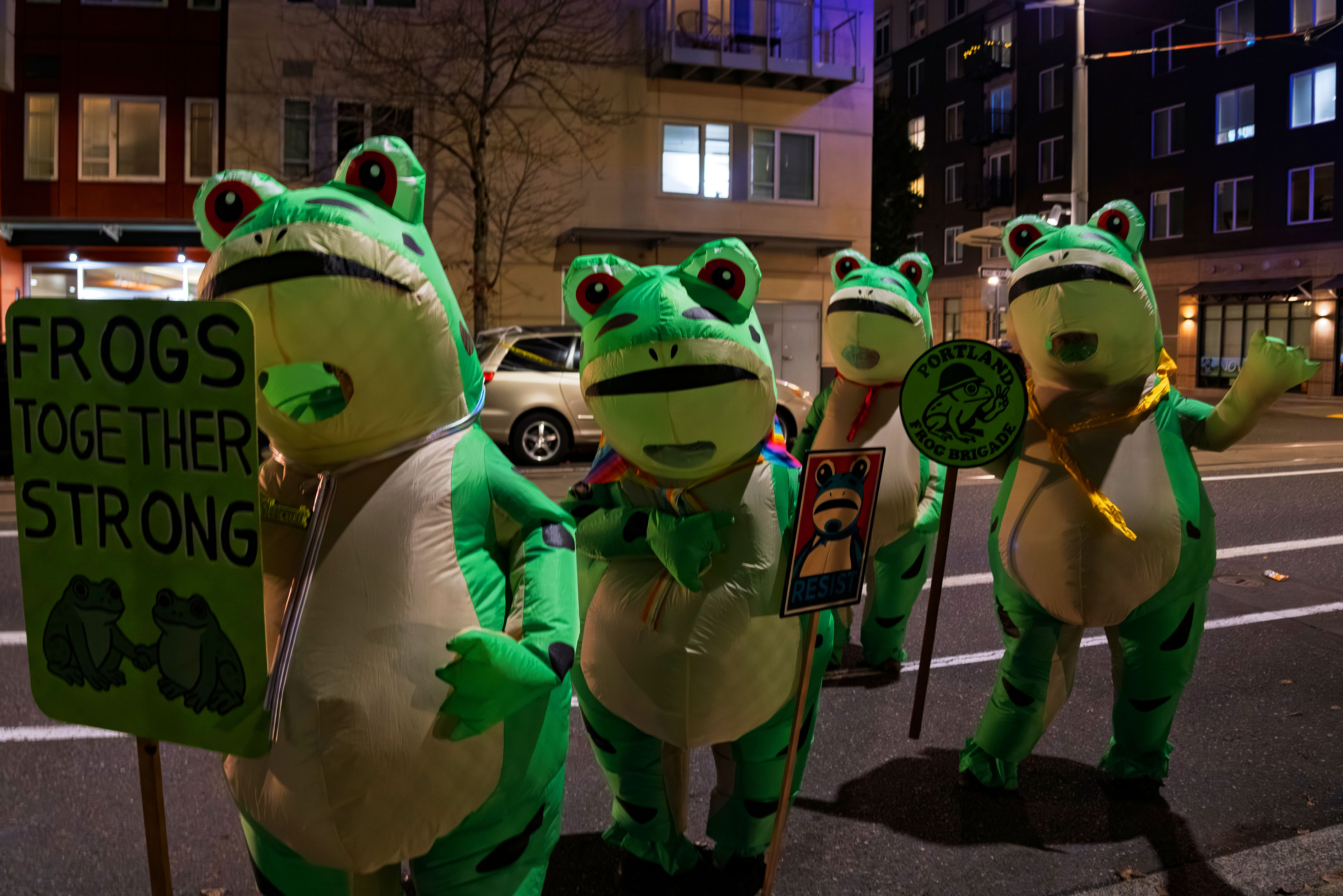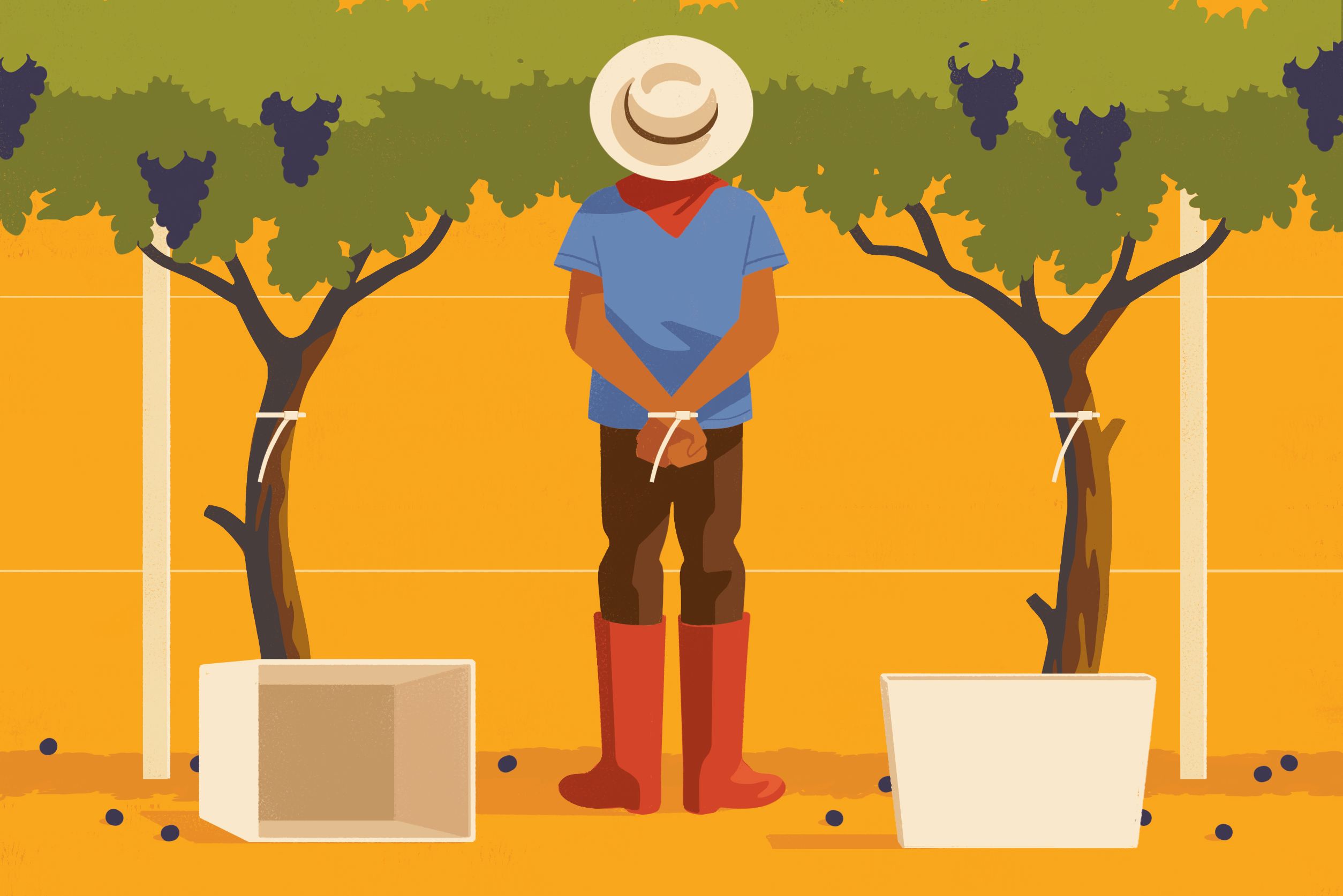These Groups Are Bringing Black-Led Farming and Food Justice to Portland
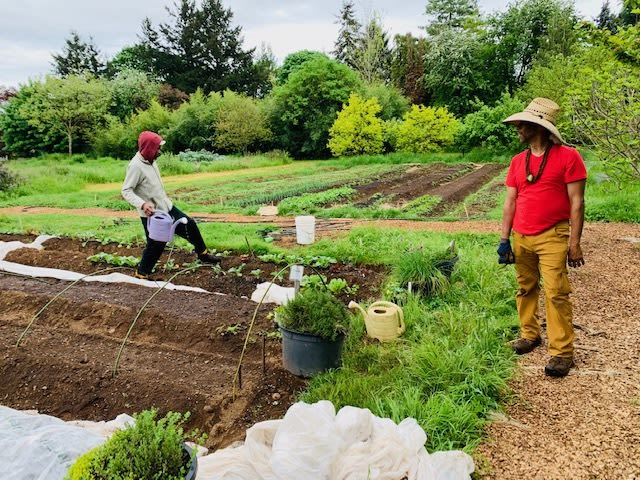
Farmer Damon Brangman (left) and Black Food Sovereignty Coalition Executive Director Eddie Hill
Image: Courtesy Black Futures Farm
The pain of the past sounds fresh when Philly-raised navy veteran Malcolm Hoover recalls the rage that came over him as he picked cotton under the sweltering Mississippi sun during a field trip to a plantation in the summer of 1987.
It’s a testament to the transformative power of food as medicine and farming as spiritual practice that, 30 years later, Hoover is now a cofounder of Southeast Portland’s Black Futures Farm, a six-month-old, veteran-operated community collaboration established on Brentwood-Darlington’s Learning Gardens Laboratory.
“Black people have a lot of trauma associated with agricultural work because of slavery,” explains Hoover. “When I’m [at Black Futures Farm] and I look out across the field at our food ... when I put my hands in the soil, it affects me positively. It grounds me and it roots me.... Working on the soil is working on your soul.”
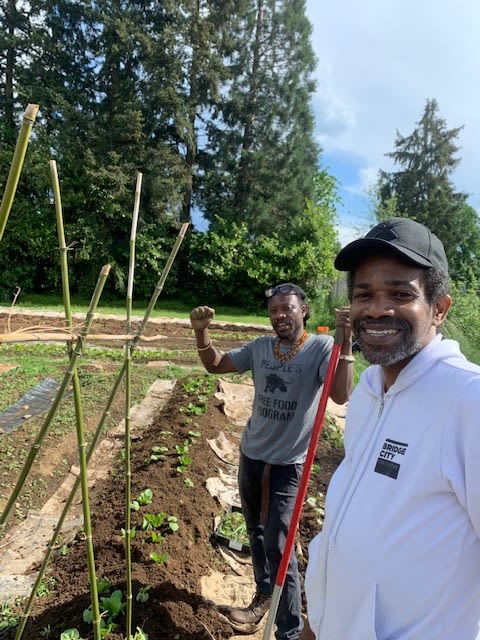
Farmer Damon Brangman (right) and farmer Allywatan Kwele
Image: Courtesy Black Futures Farm
At BFF, growing is an act of resistance: Alongside his wife and a group of dedicated staff and volunteers of all backgrounds, Hoover says he is reclaiming foods that have for years been overpriced in premium grocery stores and casually “discovered” and appropriated by white chefs in Portland’s predominantly white restaurant scene. To that end, collard greens, kale, black-eyed peas, turnips, caillou, mixed greens, and more—food that reflects the traditions and roots of Black America—are currently being cultivated for the farm’s new community-supported-agriculture program. Currently, the program serves about 40 families.
From heritage seeds and rice carried clandestinely across the Atlantic to the “New World” within the protective hairstyles of the first slaves to the groundbreaking 1960s activism of civil rights and farm collective champion Fannie Lou Hammer, Hoover and other present-day Black farmers and food equity activists in Portland are a part of a generations-long fight for food justice. They’ve found purpose in working toward self-sufficiency through food, as well as in teaching members of their communities to do the same. In doing so they’ve become a part of the larger movement for food sovereignty, defined in a 2007 declaration as the right of people and communities to "healthy, culturally appropriate food produced through ecologically sound and sustainable methods, and their right to define their own food and agriculture systems."
Food sovereignty is one solution to the challenge of “food apartheid,” or the lack of availability of nutritious food in communities of color, usually by design. In the face of the disproportionate impact of COVID-19 also on communities of color, and the strain on “big-ag” and social and environmentally questionable industrial food systems, the food sovereignty movement has gained even more attention.
For those who can’t or prefer not to farm, food sovereignty is still attainable. That’s where organizations like Equitable Giving Circle come in: In addition to working on housing solutions, EGC partners with 15 BIPOC-owned and -operated farms, including BFF, plus a number of BIPOC-owned businesses, and pays them directly to provide fresh produce, protein, or pantry items to food vulnerable families of color, with priority given to single Black mothers.
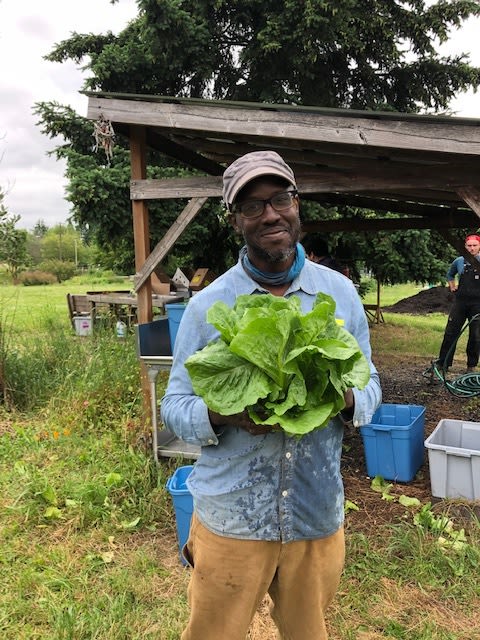
Malcolm Hoover
Image: Courtesy Black Futures Farm
“I’ve been fundraising for 15 years, but I never worked directly with my community—the Black community—until now,” says EGC founding director AJ McCreary. “We started planning [for EGC] back in December or January and we were going to launch in the fall, but then COVID happened and then the uprisings, and people started giving us money.”
What began as a pitch to provide 50 CSAs to 50 families grew into serving 100 families, then 300 families. Now EGC serves 401 families, and is on track to reach its new goal of 450 families by mid-August and to fundraise enough to continue to expand all of its initiatives and programming into 2021.
In addition to partnerships with EGC and other community-based organizations, the immediate plan for BFF is to continue to provide opportunities for BIPOC to learn to farm, and to continue preparing the land to host expanded food offerings such as heritage crops from the American South and West Africa.
While BFF can’t fulfill every community need and its growth is slow (but steady), says Hoover, BFF will always be a rare, dedicated, pan-African space for Black people. Whether it’s to come and hang out, to work, to dance, to eat, to play, or to just be—whatever the community needs to feel whole and safe, BFF is there to provide. “What I’ve learned is it doesn’t matter what white people do, it matters what Black people do,” says Hoover. “As we get better at taking care of one another, our lives get better. And as our lives get better, we get better at taking care of ourselves and at taking care of each other.”

